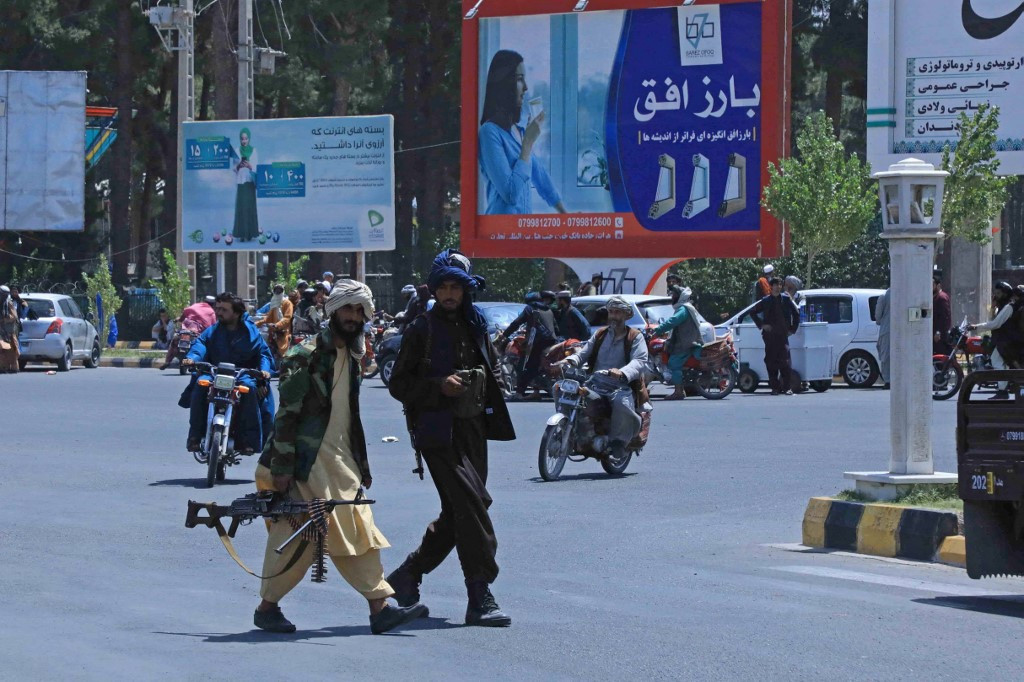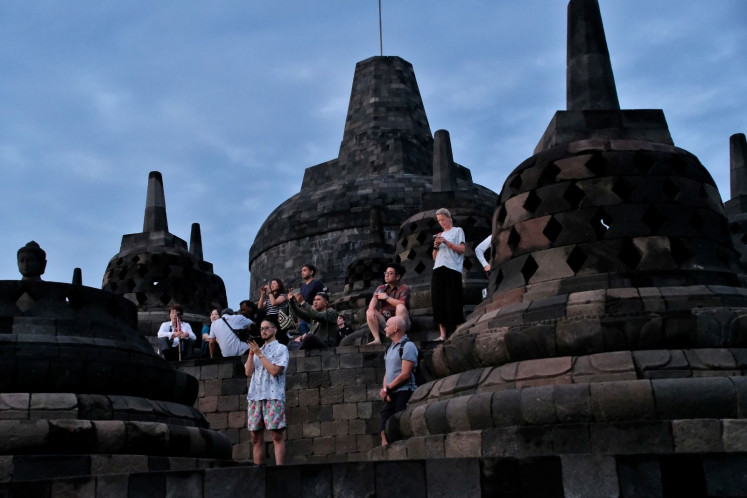Popular Reads
Top Results
Can't find what you're looking for?
View all search resultsPopular Reads
Top Results
Can't find what you're looking for?
View all search resultsAfghanistan’s dark age
The immediate implications of the Taliban’s return for other countries, including Indonesia, will be an exodus of refugees fleeing the Taliban regime with all consequences, including security threats.
Change text size
Gift Premium Articles
to Anyone
A
few months after the pullout of American troops, Afghanistan looks set to reenter a dark age as the Islamic fundamentalist Taliban appear to regain control of the country. While other predominantly Muslim or Islamic countries are embracing the tenets of modernization and civilization that are in line with Islamic teachings and values, there are fears that Afghanistan under the Taliban will revert to the “stone age”.
The immediate implications of the Taliban’s return for other countries, including Indonesia, will be an exodus of refugees fleeing the Taliban regime with all consequences, including security threats. For a long time, Indonesia has had the ambition to act as an honest broker of peace in Afghanistan. It is clear, however, that good intention alone is not enough — or perhaps goodwill is not realistic at all.
After spending no less than US$822 billion and losing more than 2,400 soldiers in the war against the Taliban, the United States will completely terminate its 21-year military presence at the end of this month. According to President Joe Biden, the US has achieved its mission to get the terrorists who attacked the country on Sept. 11, 2001, and to find justice, including by finding and killing Osama bin Laden.
Many countries, including NATO members and Indonesia, regretted Biden’s decision, which had been announced several times when it was still a plan. From Biden’s point of view, it does not make sense that the US bears the Afghan burden alone.
American troops killed bin Laden at Abbottabad in Pakistan on May 2, 2011. In the same year, the number of US troops in Afghanistan reached 110,000, the highest in its operation there. NATO officially ended its combat operation in December 2014, and there were only 13,000 remaining troops to train the Afghan military.
The then-Soviet Union occupied Afghanistan for 10 years until February 1989, two years before its own collapse.
Afghanistan attracted the attention of at least two Indonesian presidents, Soeharto and Joko “Jokowi” Widodo. In January 2018, Jokowi visited Kabul at the invitation of President Ashraf Ghani. Jokowi also went to Pakistan to meet then-Pakistani president Mamnoon Hussain to propose a trilateral ulema conference in Bogor, West Java.
The conference eventually took place in May that year, with the agenda including promotion of peace and friendship under Islam, defiance of violent extremism, as well as the ulema's and the state’s peacebuilding role. The Taliban, however, boycotted it, meaning the conference was fruitless.
A lesson we can learn from Afghanistan is no matter how strategic a country is, in the end, it should stand on its own feet. Controlling power through violence and brutality in the name of religion will not bring peace and prosperity — only terror.
We feel very sorry for the Afghan people. But as Biden has said, it is up to the Afghan people to decide the future of their nation.










